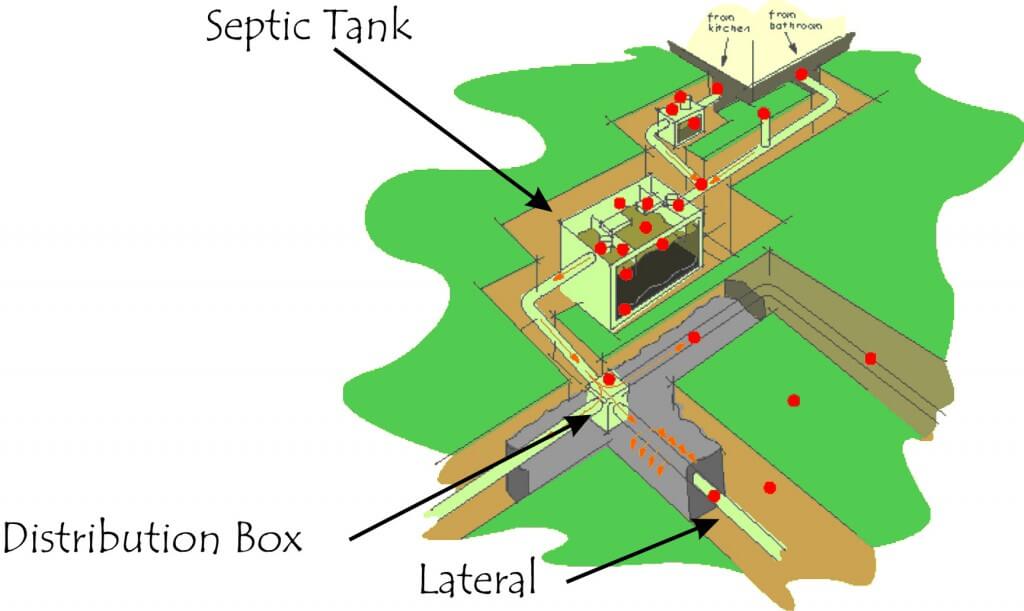Septic Tanks
Septic tanks explained to help you better understand what’s behind the process hidden in your garden and the waste water management provided by a septic tank system. Post one in a series to come to terms with a potential issue at your home.
Septic tanks – what are they?
Septic tanks are a type of wastewater management system commonly used in rural areas. Septic tanks are usually found underground in close proximity to the premises. They manage all waste emitted from a household (wastewater from bathrooms, kitchens and appliances). Septic tanks are not connected to any sewer system; instead they have a percolation area allowing for natural decomposition. This is vital if building in a rural area with no sewer access for the household.
Where are they used?
As stated before, they are very commonly used in rural areas. This is due to the lack of alternatives to household waste management. If a property were to be developed on a quiet countryside road, it would most like have a septic system. A census in 2011 recorded that 27.5% of all Irish Households utilize a septic system
Source; Wikipedia https://en.wikipedia.org/wiki/Septic_tank
Downside to Septic Tanks?
Like every waste management system, Septic tanks have their own pros and cons. A consumer should be well versed in both before further inquiry. Compared to the alternative of sewers septic tanks are much more eco friendly. Although, septic systems place the responsibility for proper installation, maintenance and use on the owner of the septic system where as with sewer systems, responsibility more or less falls onto the government which has better resources as to handling household waste. A well maintained concrete or plastic septic tank has the potential to last 50 – 80 years.
How does a septic tank work?
Septic systems filter waste water using rather simple methods. Waste is drained from the premises by using the standard plumbing. The waste gathers in the septic tank, when it’s there it separates from liquids and solids over a period of 24 hours. This is done by gravity and the differing densities in the waste. Denser solid waste (sludge) gathers at the bottom of the tank and the waste water stays above it. This water drains out of the tank and heads through a dividing wall into a second chamber, further settlement takes place in this area. The now relatively clear wastewater exits the second chamber and flows in the direction of the percolation area. The percolation area is an area of soil where the treated wastewater exits, allowing it to evaporate or wash away.
My next post in the septic tank series will discuss what not to put down your waste system when you have a septic tank system installed at your house – these could be considered the downside to septictanks but its actual common sense and is applicable to mains wastewater systems also. Furthermore I will discuss the percolation area & polishing filters and the various types.
EPA Waste water and septic tank system Guidelines
Every system must comply with our current set of Irish guidelines issued by the EPA. If a septic system fails to uphold these guidelines they will be forced to upgrade or replace, luckily if this is the case they are grants available to septic owners to aid the process. Septic systems are inspected by the local authority to determine is safe and working efficiently. If the inspection determines that the system is not up to standard, you could be eligible to a grant which covers repair/replacement costs. These EPA guidelines are in place to ensure that the system is safe for the locals, flora, fauna and environment.
WHAT TO EXPECT FROM A SEPTIC TANK INSPECTION from the department of the Environment, Community and Local Government, this will also be explained in my next septic tank information post. If you need to get professional help or advice as you’ve just had an inspection or your system is not compliant or if you are building a home and want to ensure the design of your septic tank is up the the standards set our by the EPA and the technical guidance of the Irish Building Regulations – Contact either – Dublin Surveys : 01 5242062 Or further information on septic systems, septic tank systems and septic systems in Ireland in general can be found at the leading experts in the field (no pun intended !) –
087 2973129 | 087 7817953
Email : septicsystemsireland@gmail.com
Author: Patrick Kelly – © – 2016



